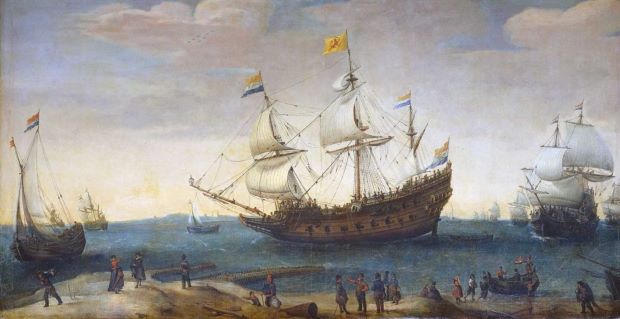April 17 in History
1986 –Peace is declared in an alleged state of war lasting 335 years between the Netherlands and the Isles of Scilly, bringing an end to any hypothetical war that may have been legally considered to exist
The Three Hundred and Thirty Five Years’ War was an alleged state of conflict between the Netherlands and the Isles of Scilly (located off the southwest coast of Great Britain), the existence of which is disputed. Dating back to the English Civil War in 1651, it is said to have been extended by the lack of a peace treaty for 335 years without a single shot being fired, which would make it one of the world’s longest wars, and a bloodless war. Despite the uncertain validity of the declaration of war, and thus uncertainty about whether or not a state of war ever actually existed, peace was finally declared on this day in 1986, bringing an end to any hypothetical war that may have been legally considered to exist.
The conflict began when the Dutch, an unlikely player in the English Civil War, essentially a domestic clash, decided to join the conflict on the side of the Parliamentarians after identifying them as the most likely victors. The Royalists – long-time allies of the Dutch – considered this decision a betrayal and set about punishing their former friends by raiding Dutch shipping lanes in the English Channel.
By 1651 however, things were not going well for the Royalist forces. After a series of successful battles, Oliver Cromwell (second in command of the newly formed main parliamentary army) had pushed their army back to their last stronghold of Cornwall, whilst the Royalist navy had been forced back to the tiny Isles of Scilly.
The Dutch, seeing an opportunity to recoup some of their losses from the Royalist raids, immediately sent a fleet of twelve warships to the Isles of Scilly to demand reparations. After receiving no satisfactory answer from the Royalists, the Dutch Admiral Maarten Tromp subsequently declared war on the Isles of Scilly on March 30, 1651.
Interestingly, there are conflicting accounts over whether or not Tromp actually had the authority to declare war on the Isles of Scilly. Some argue that Tromp had been given the authority prior to setting out, whilst others argue that he carried out a blockade of the islands whilst waiting for his government’s approval. Regardless of the specifics, three months later in June 1651 Cromwell’s forces under the command of Admiral Robert Black forced the Royalist fleet to surrender and the Isles of Scilly reverted to Parliamentarian control. The Dutch fleet subsequently sailed home, albeit forgetting to declare peace on the poor little Isles of Scilly!
-historic-uk.com/ENCL



Comments are closed, but trackbacks and pingbacks are open.